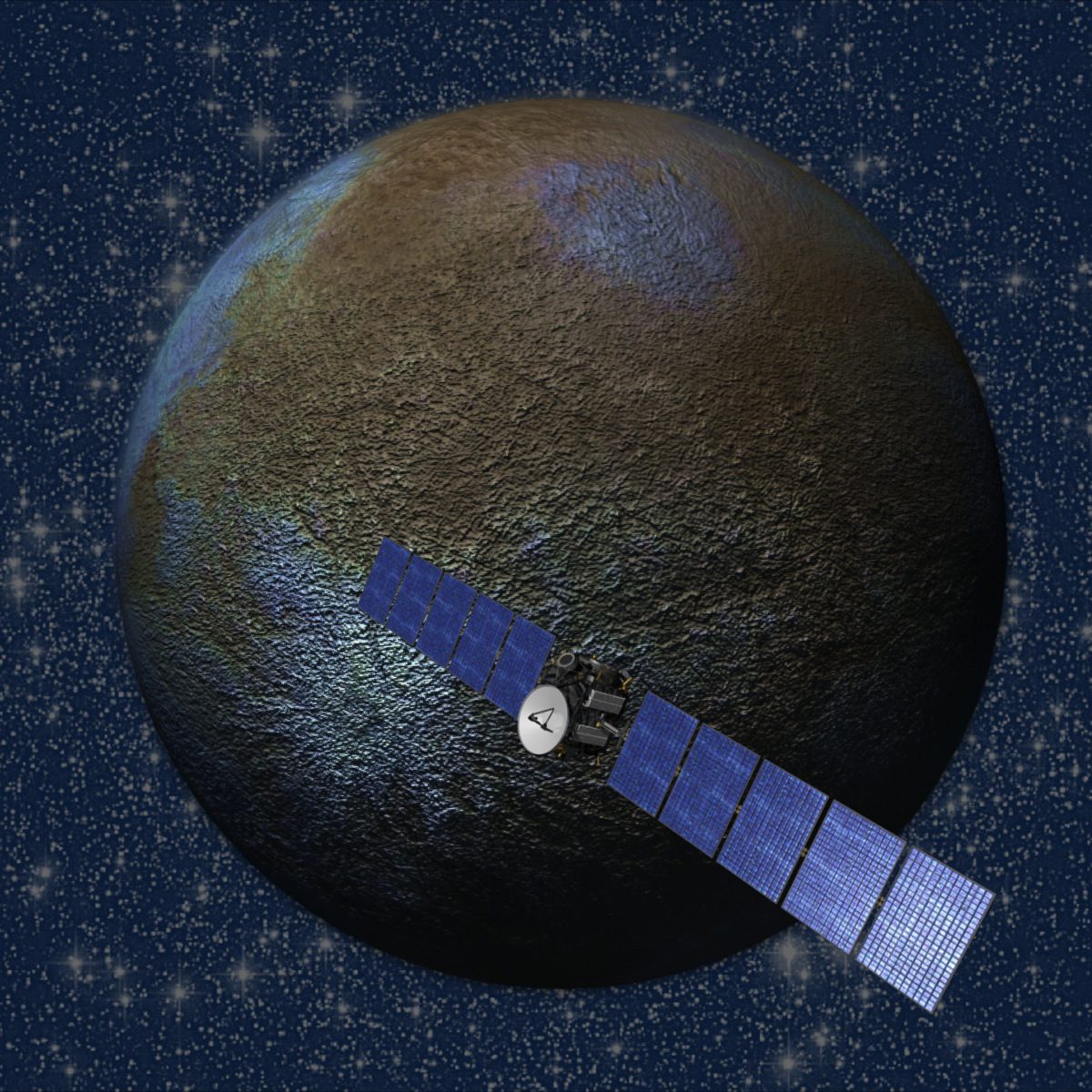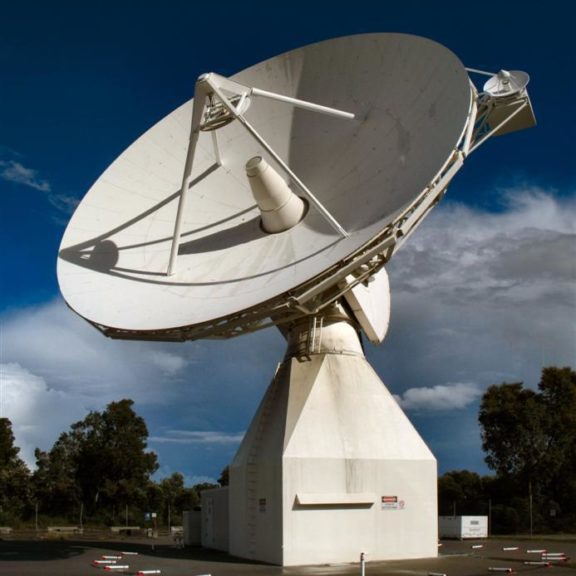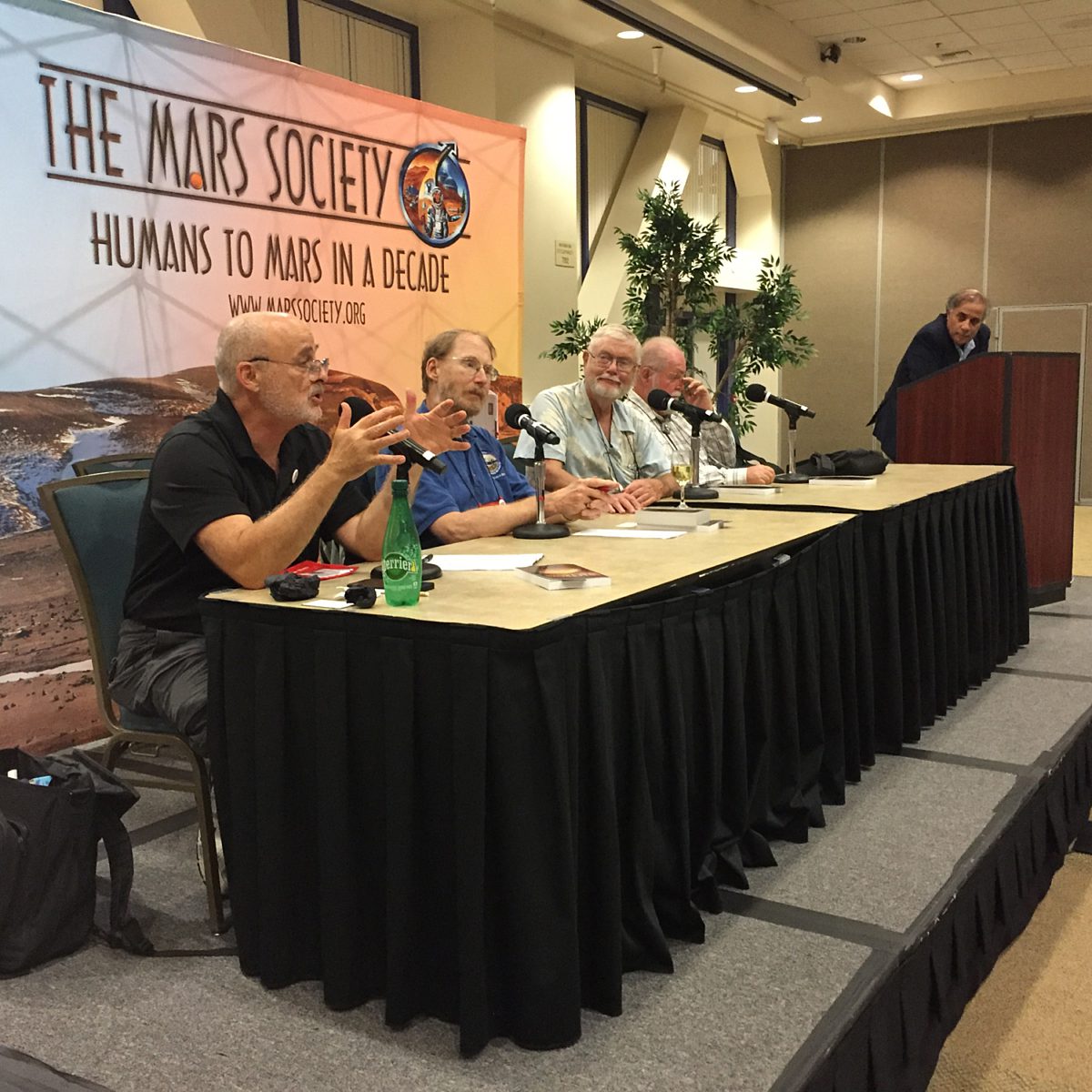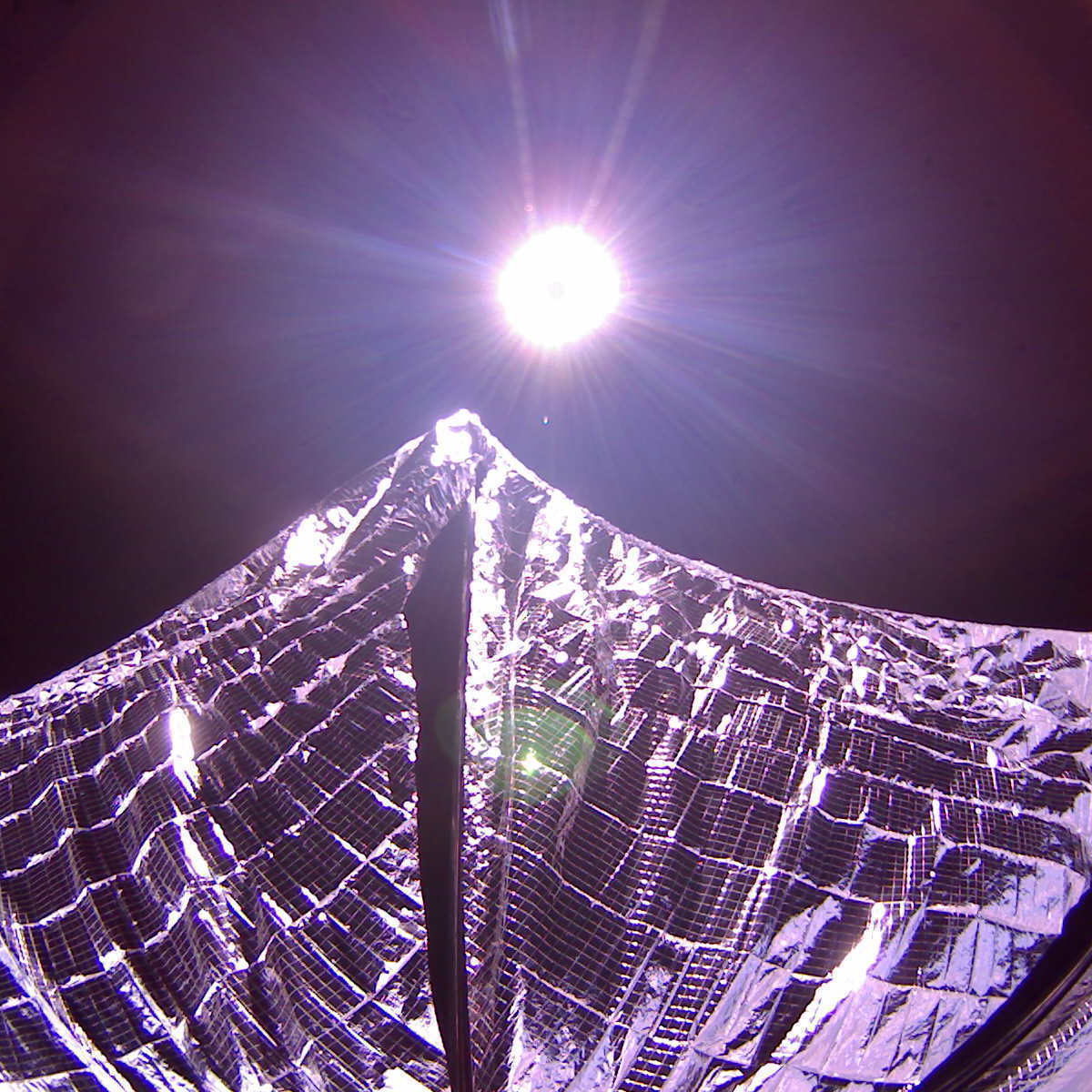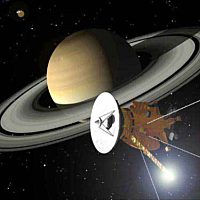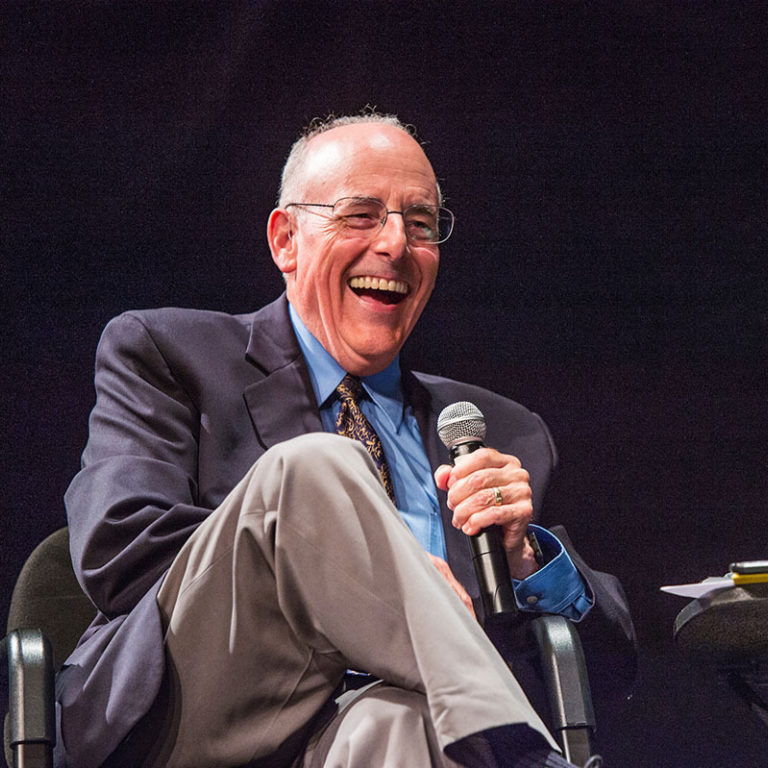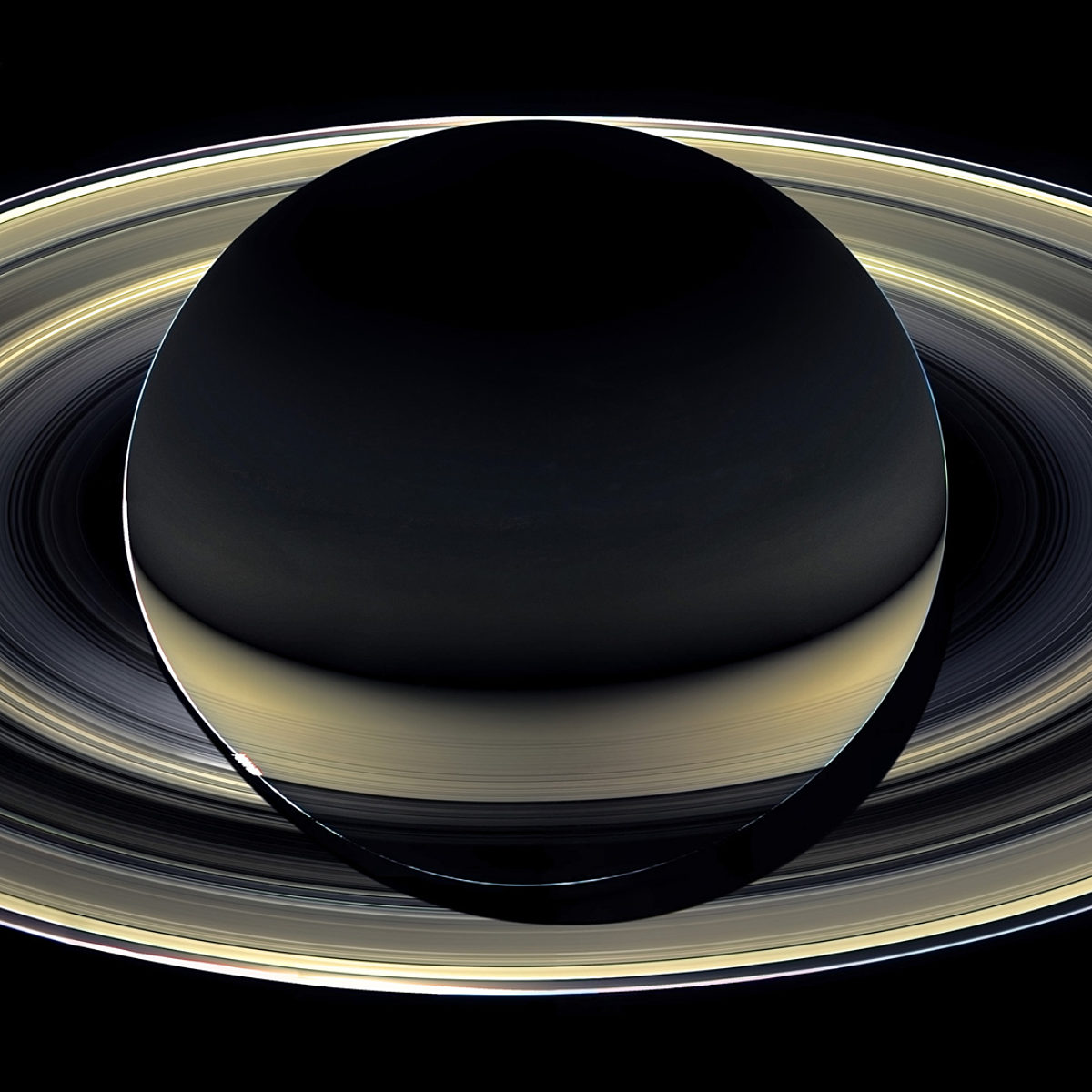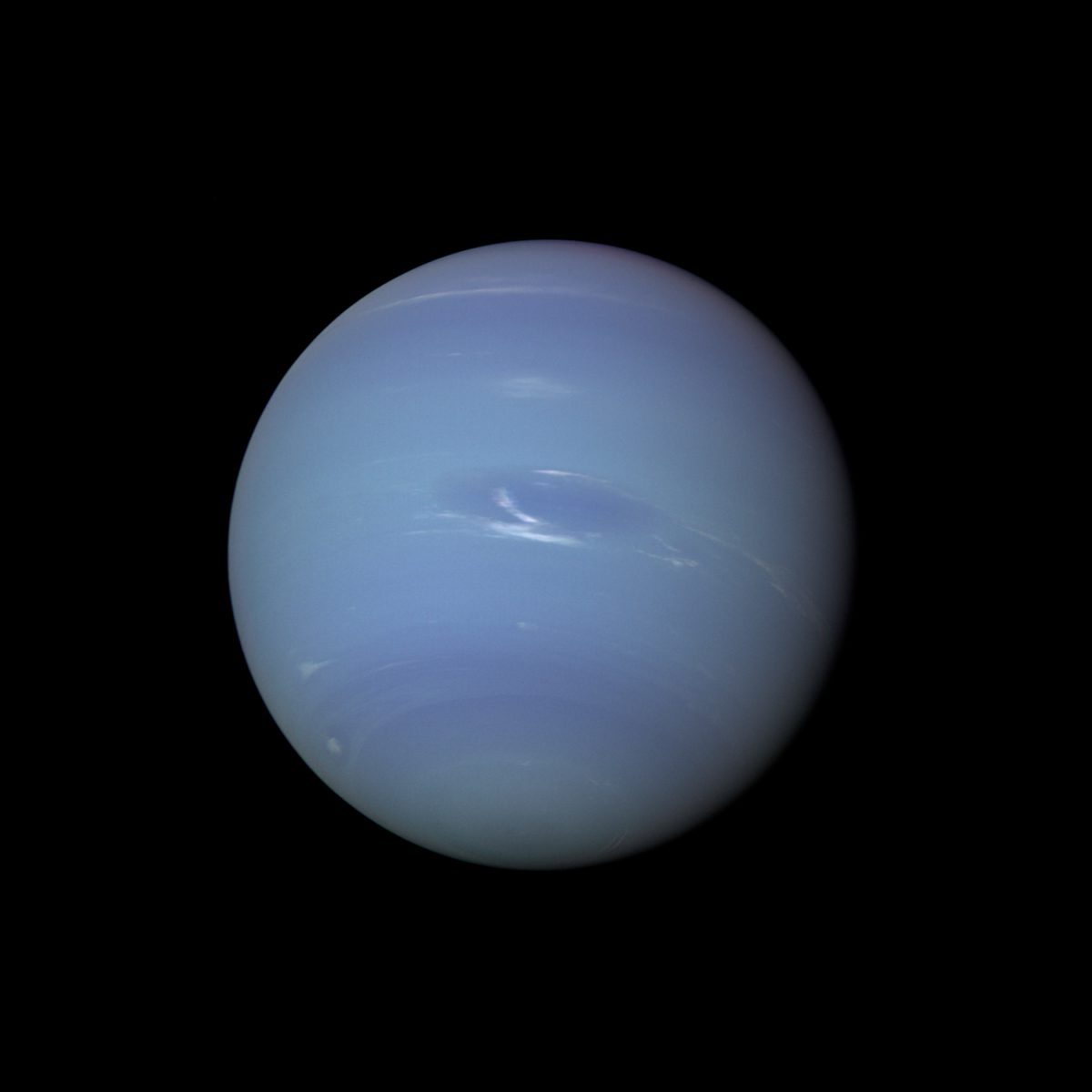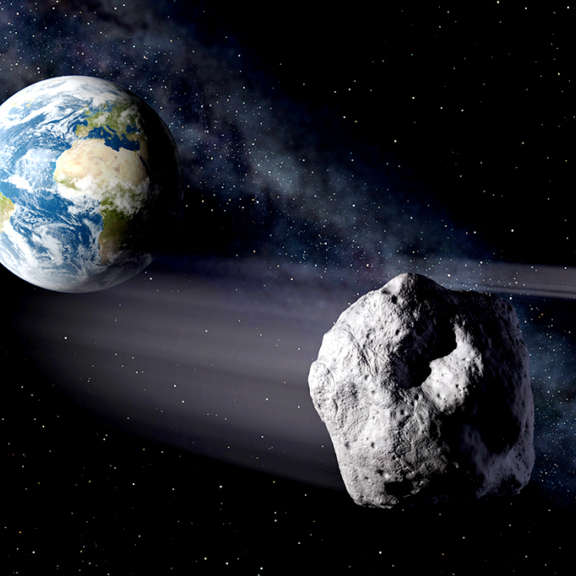Since 2002, Planetary Radio has visited with a scientist, engineer, project manager, advocate, or writer who provides a unique perspective on the quest for knowledge about our Solar System and beyond. The full show archive is available for free.
Search Planetary Radio
Join us for a wide-ranging, salon-style conversation about space exploration, science, art and more. Mat’s guests are astronomer, television producer/writer and former Star Trek science advisor André Bormanis and Planetary Society Senior Editor Emily Lakdawalla.
Astronomer Pamela Gay tells us how anyone can work with images of Earth taken by astronauts, turning them into terrific scientific resources.
Dawn Mission Director and Chief Engineer Marc Rayman helps us salute the ion-engine powered spacecraft that first orbited asteroid Vesta in the main asteroid belt and then moved to dwarf planet Ceres, revealing two fascinating worlds.
Fifteen years before Sputnik, on a bright 1942 afternoon in northern Germany, a thundering machine of metal and fire pierced the sky, ultimately touching the edge of space for the first time in history. It opened a new era of opportunity and terror with rocket technology. Dr. Michael Neufeld joins us discuss the significance of this test and how it happened.
The Australian government announced that it would create a national space agency at the 68th annual International Astronautical Congress in Adelaide. We’ll talk with IAC 2017 CEO Brett Biddington about what this means for his country.
More than 1,100 fans of the just-completed 20-year mission to Saturn joined us for a live tribute.
Robert Zubrin of the Mars Society talks with Gregory Benford, David Brin, Geoffrey Landis and Larry Niven about terraforming Mars, the origin of life, the drive to explore and more.
The co-founder and Executive Director Emeritus of The Planetary Society returns for a conversation about the allure of sailing through space.
The multi-billion dollar, multi-decade Cassini mission is about to end. A new report tries to answer an important question: are flagship science missions like Cassini worth the effort and expense? And how can NASA maximize the value of these endeavours? Dr. Ralph McNutt, co-chair of the National Academies study, reviews the report’s recommendations.
With hours to go before the Great American Eclipse, nine outstanding guests joined host Mat Kaplan for Planetary Radio Live in front of 1,100 rowdy eclipse and space science fans.
JPL astrophysicists Alina Kiessling and Jason Rhodes were brought together by their fascination over the mystery of dark energy. They talk with Planetary Radio about their research and the many missions they are contributing to, including WFIRST, a unique new space telescope.
The world’s most powerful solar telescope has just been renamed for the man responsible for its creation. We’ll meet astrophysicist and helioseismologist Phil Goode, and we’ll enjoy a tour of the Goode Solar Telescope.
Will humans live, work and thrive on Mars? What challenges must be met before we can become Martians? On July 20th, the anniversary of the Apollo 11 moon landing, Mat Kaplan welcomed an outstanding panel of experts for conversation in front of a Pasadena, California audience.
The Cassini Mission has less than two months to go before it ends with a spectacular plunge into the beautiful ringed world. Planetary Society Senior Editor Emily Lakdawalla has prepared a guide to the last orbits by the historic spacecraft.
When the Pathfinder lander reached Mars 20 years ago it began a Martian renaissance that has never paused. JPL scientist Matt Golombek was the mission’s Project Scientist. He looks back and to the future of our explorations at the Red Planet.
A new report builds the case for long overdue returns to Uranus and Neptune, while another proposal calls for exploration of the many bodies in our solar system that hide vast water oceans. Jason Callahan, Casey Dreier and Mat Kaplan dive into the troubled waters that determine which planetary science missions will get the limited funds available.
Veteran astronomer and cosmologist Sandra Faber has just been awarded the Gruber Prize for Cosmology, honoring more than forty years of pioneering work. She talks with Mat Kaplan on this week’s show.
Asteroid Day, June 30th, marks the anniversary of the great Tunguska impact that leveled a Siberian forest. It reminds us that a Near Earth Object can destroy a city or even a civilization. Former Minor Planet Center Director Tim Spahr reviews our efforts to find and understand these bodies.
Former NPR science reporter David Baron discusses the stories of men and women who made their way across the American West to view and document the total solar eclipse of 1878.
How do you keep a dazzlingly complex spacecraft in good health after 20 years in space? That’s the challenge for Julie Webster and her team of engineers supporting the Cassini mission at Saturn.


 Explore Worlds
Explore Worlds Find Life
Find Life Defend Earth
Defend Earth




